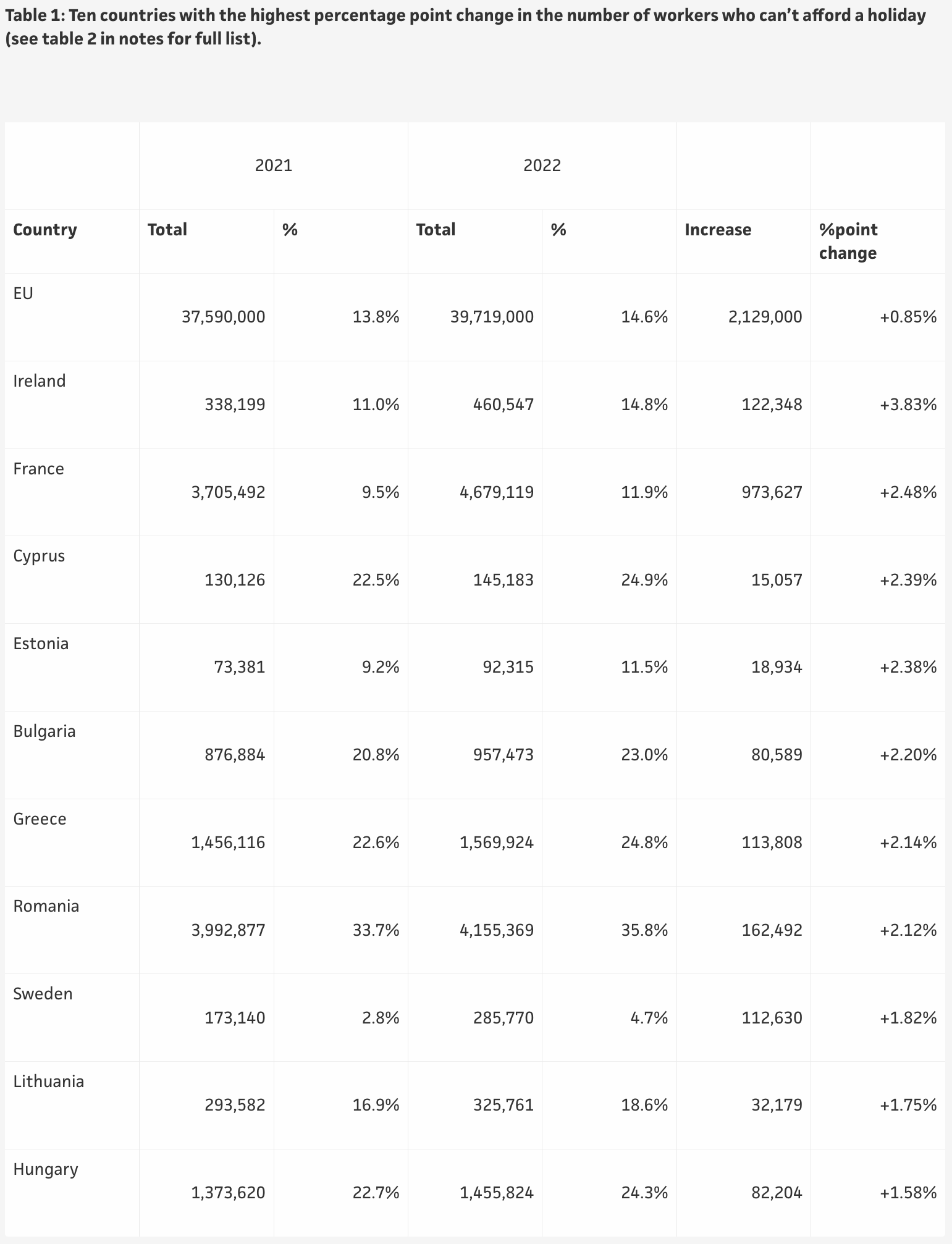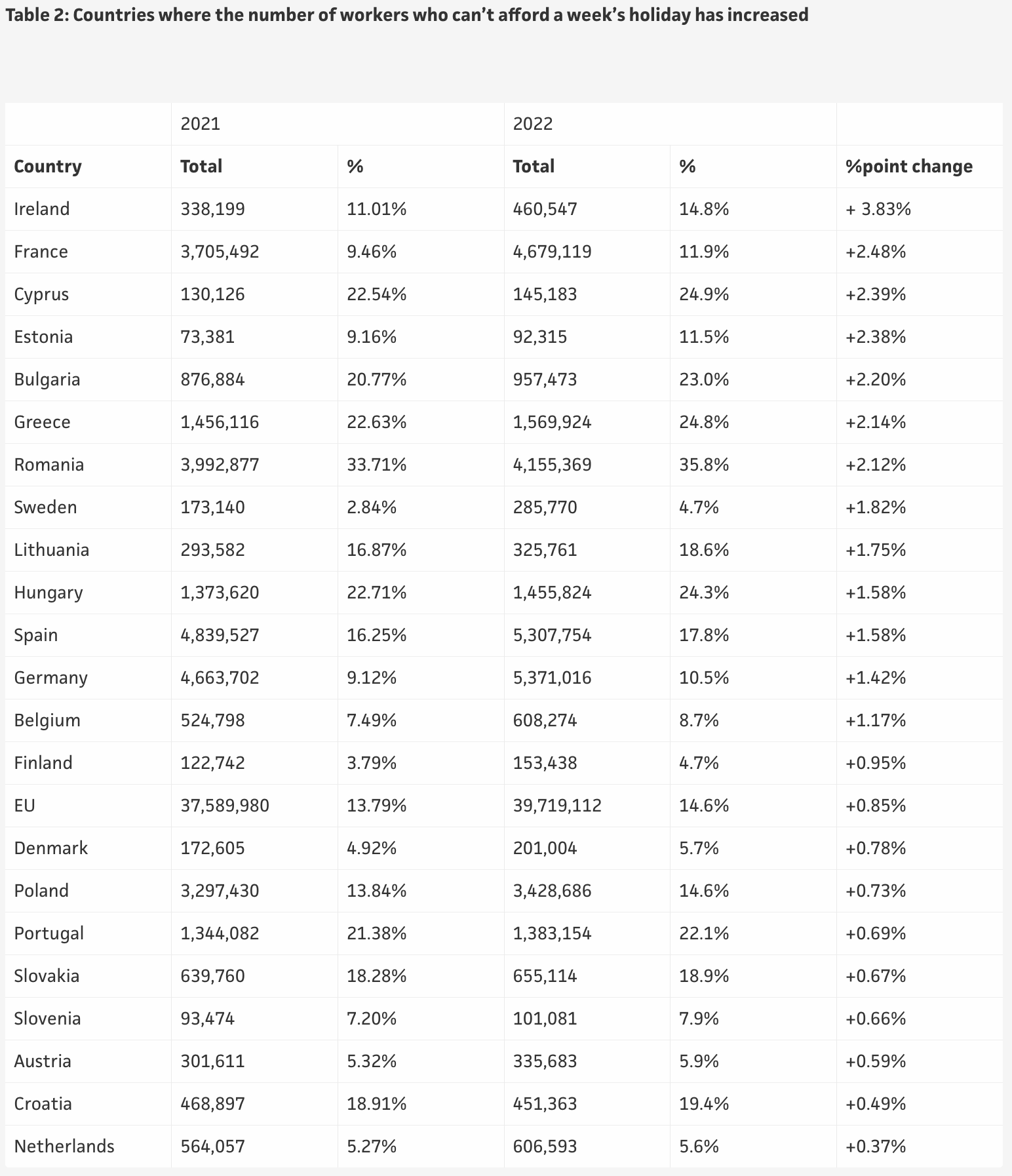European holiday poverty is on the rise
The recent increase in the number of workers across Europe unable to afford a week’s holiday has sparked concerns about growing economic inequality and its impact on employees’ well-being.
An analysis commissioned by the European Trade Union Confederation (ETUC) reveals that 39.7 million working Europeans (15%) could not afford a holiday in 2022, a sharp rise from 37.6 million (14%) in 2021.
Italy is the country with the highest absolute number of workers unable to afford a holiday
This troubling trend underscores the urgent need for stronger collective bargaining and better work-life balance initiatives, such as a more efficient enforcement of the right to disconnect, to which CEC European Managers’ member organisations have actively contributed in recent consultations with the European Commission.

The countries with the most significant increases in holiday poverty include France, where nearly a million more workers were unable to afford a break, and Ireland, which saw the most significant percentage point rise at 3.8%.

Despite this, Italy remains the country with the highest absolute number of workers unable to afford a holiday, followed by Romania, Cyprus, and Greece.
These findings highlight the necessity of promoting collective bargaining, which not only ensures fair wages but also enables workers to secure better holiday entitlements.
Only a few EU contries are showing concrete action towards the EU’s Minimum Wage Directive implementation
The EU’s Minimum Wage Directive, aimed at enhancing collective bargaining coverage, is a step in the right direction, but the implementation has been slow, with only a few countries showing concrete actions.
The voice of European managers
CEC European Managers, as a social partner of the European Commission, emphasizes the importance of the right to disconnect as a critical element in improving work-life balance. In the context of rising holiday poverty, this right ensures that workers can truly rest and recharge. Taking holidays is an essential factor for both physical and mental health. As bridge-builders between employees and employers, leaders and managers are deeply concerned about this topic.
Even though the EU member states are approaching the November 2024 deadline to transpose the Minimum Wage Directive into national law, more substantial efforts are urgently needed to protect workers’ rights, including the right to disconnect.
CEC European Managers calls on EU leaders to prioritize these measures to prevent further erosion of social progress and ensure that all workers can enjoy a well-deserved holiday free from financial strain.





